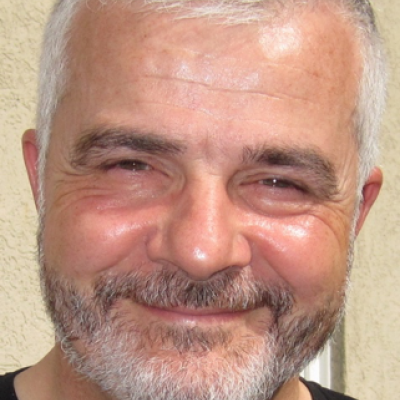Have you ever sat at the very edge of the sea as the tide ebbs and flows, gently touching your toes, only to realise how quickly the waters can turn?
A few years ago, I returned to a beach where the sea had been calm the day before, but now it was caught in the fury of a storm. My eldest son and I, both clad in wet suits, had entered the madness of the storm to try to ride the waves, and I got absolutely pummelled! Where yesterday the wave embraced you, today it sought to tear you apart and I remember being underwater, pressed into the sand, waves squeezing the air out of my body, and feeling totally overwhelmed. Sinking, in pain, and losing the light, they call this being ‘mashed’.
Trauma and bereavement also do that to us. Whereas the day before it might have been sunny and we caught the rays sitting on a golden beach by the sea, now that tide has become a monster, pounding us with such relentless ferocity that we can barely breath. We struggle to do even simple things, like getting up and responding to texts, and then it stops, only to return later, another day or week, unsuspecting but equally as powerful.
We can all think of those in our communities who have suffered trauma and loss in the last few months. Many have suffered bereavement after the death of loved ones, but for others, they are grieving their health, their aspirations, their jobs, and the multitude of things that have been lost as a result of the pandemic. This pain is real and valid, and we must respond well to it as the church.
How do you help someone battling the waves?
Following many years as an Army Chaplain, serving in some of the worst war zones on the globe, I have discovered that the biggest gift you can give is yourself; being there for someone. It’s not about trying to offer platitudes, glib sentences, or your observations. Avoid clichés such as, “I understand” or “I know how you feel”, because you don’t. Even if you have experienced personal trauma and grief, each person’s experience is unique to them, and should be treated as such.
Being there – a ministry of presence – is always the greatest gift you can offer those who are suffering. So often in Jesus’ ministry He simply gave space for people to be heard. Don’t feel uncomfortable with silences or fill the gaps with noise, but offer a listening ear, tissues and, of course, a cup of tea.
Talking about grief and trauma is extremely important and in the Northern Ireland troubles, the chaplain would often debrief those involved in traumatic events with tea, toast, and talk. It provided crucial space for survivors to share their experiences. From 2007 onwards, the military began to employ an excellent system called Trauma Risk Management, which uses timelines and assessments, but crucially centres on people sharing their stories. This means sharing what they saw, how they reacted, their version of what happened, how they felt, and where they are now. This process puts you as the listener into a very precious and privileged situation of sharing their experience and pain.
It’s important to reassure people with verbal and physical affirmations, encouraging them to talk, but without asking leading questions or trying to move them to a particular outcome too soon. That may come in time, as they seek to process, reflect, and come to terms with what has happened, but our role is primarily to sit with them, listen, and simply be there.
As you listen, try to do so without expressing judgement, not imposing your thoughts on what has happened or reacting negatively to things. Once trust is built, there may be opportunity for advice later if they ask for it, but during the early days, we are simply there for them, come what may. The waves pound, they struggle breathless, but they are not alone!
"So often in Jesus’ ministry He simply gave space for people to be heard."
Releasing our emotions is a critical part of the healing process. It’s not about forgetting the trauma or expecting things to return to the way they were, but being able to acknowledge how we feel and adjust to a new normal in the light of that. This process is called ‘ventilating’, as it allows the emotion to flow and stops it simply building up. In a sense, it is letting the poison out.
Prayer must be a constant throughout this. As they share, you constantly cover this time in silent prayer, for them, for others involved, for wisdom, for the Holy Spirit, and the peace of God. It may be that you have the chance to offer a gentle prayer with them. This is not always appropriate and we must never force this upon those who feel uncomfortable, so sensitivity is key.
Ultimately, it will take some time for the true trauma and grief of the last year to fully come out. Many may not even recognise their own pain until we’ve adjusted to a new normal and it hits them for the first time. As the church, we must be prepared for these waves, ready to listen and love as Jesus does. Progress will not always be linear, but we trust in a God who knows our suffering and will be present with us as we make ourselves present to others.




